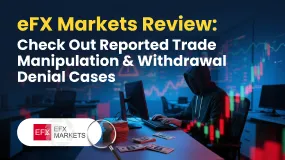Abstract:Chief financial officers (CFOs) have stated that in order to lessen the impact of the Naira's devaluation on their bottom lines, Nigerian companies will need to enhance their local sourcing of supplies and expand their exports.

Chief financial officers (CFOs) have stated that in order to lessen the impact of the Naira's devaluation on their bottom lines, Nigerian companies will need to enhance their local sourcing of supplies and expand their exports.
At the Lagos Business School CFO Leadership Summit 2024, which had as its theme “The CFO as Strategic Architect - Maximizing the CEO-CFO Synergy,” this topic was covered.
“Diverging into non-FX driven input or output materials is the biggest way for a company to manage its business and mitigate FX risk. ”According to Boye Olusanya, CEO of Flour Mills of Nigeria Plc, “you're either exporting or your input material is local substitutions, and those are hedges you'll continue to see.”
He claimed that significant hedging opportunities from the previous year are no longer accessible due to the decline in the number of officially available alternatives.
Thus, there will be a strong push for a significant export of regional goods. Value-added export is what we should all be aiming for, according to Olusanya.
We are constantly driven to find a more sustainable method of importing raw materials.
And to mitigate import risk and foreign exchange volatility, we have backward integration as a solution.
The willing buyer, willing seller paradigm was reinstated and all FX market sectors were combined under the Investors and Exporters window by the apex bank in June.
The naira had a significant devaluation as a result of the FX system being liberalized as part of efforts to boost the economy.
As of right now, the currency has dropped from N463.38/$ to N1,560.6/$, and the naira has dropped from 762/$ to 1570/$ on the parallel market. Prior to rising, it had fallen to a record low of N1,800/$.
A significant number of large Nigerian enterprises have reported losses for the entire year due to the ongoing reduction in the nation's foreign exchange reserves.
According to Alex Osho Group COO, Waltersmith Group, Nigeria's leadership instruments are insufficient to shield businesses from foreign exchange difficulties.
While you can easily adopt these tools in the US and Europe to counter some of the risk you face in the FX environment, there are limitations to using those tools in Nigeria because there is no liquidity or convertibility to do so, he explained. “We have hedging instruments in Nigeria, but the issue with it is the depth and liquidity of that market.”
Companies that reported losses in the previous year, according to Osho, were largely powerless.
According to him, businesses with a natural hedge typically outperform others because they “naturally hedge their revenue sources match their income sources.” in a way that allows you to exchange dollars for dollars and naira‘s for naira’s.
For this reason, a lot of businesses are trying to find ways to diversify their foreign exchange sources by having an export channel. It's constrained and awkward without that, Osho remarked.
According to him, banks that announced foreign exchange profits had some damage done to their balance sheet; “their loan books have blown up and that has implications for their capital adequacy.”
“Our expectation is that in the long term, there will be a sufficiently liquid market with tools available to us to effectively manage this risk,” stated Osho.
In addition, Wole Adeniyi, CEO of Stanbic IBTC Bank, stated that there are insufficient goods to counteract the devaluation, as stated by Olu Delano, Executive Director of Personal and Private Banking Nigeria.
He stated, “We just have to adjust and keep going, but you have to be able to disclose to the board that the business is exposed to this and what the likely consequences are.”










